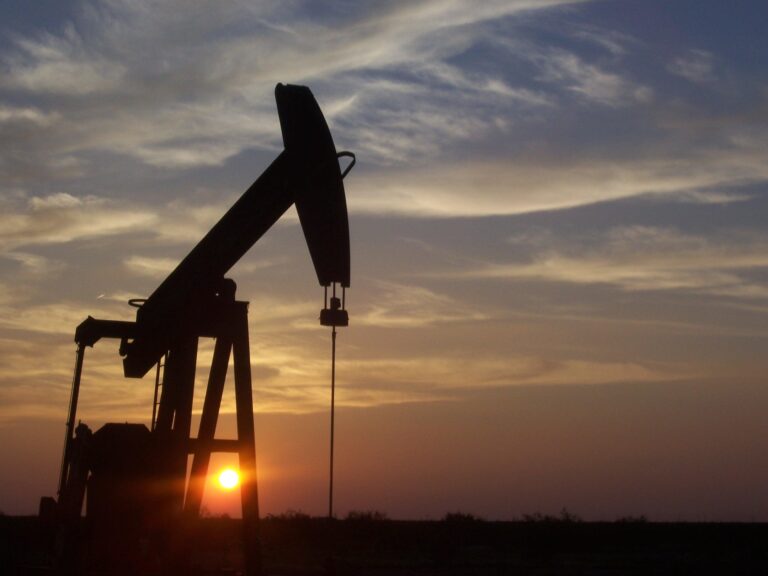Brazil has officially approved new oil drilling projects within the Amazon rainforest, igniting fierce opposition from environmentalists and indigenous groups. The government’s decision to expand exploration in one of the world’s most biodiverse and ecologically sensitive regions has raised urgent concerns over the potential acceleration of deforestation, habitat destruction, and climate change impacts. As global attention focuses on protecting the Amazon, this move marks a significant shift in Brazil’s environmental and energy policies, prompting calls for greater scrutiny and debate.
Brazil Authorizes Oil Drilling in Amazon Amid Rising Environmental Concerns
In a move that has sparked widespread controversy, the Brazilian government has granted permission for extensive oil drilling operations within the Amazon rainforest. Proponents argue this initiative will bolster the nation’s economy by tapping into previously unexplored resources, potentially increasing energy independence and job creation. However, critics warn that the extraction process poses significant threats to one of the world’s most vital ecosystems, risking irreversible damage to biodiversity and indigenous lands.
Environmentalists and indigenous groups have voiced strong opposition, emphasizing several urgent concerns:
- Deforestation acceleration: Infrastructure development linked to drilling could lead to increased clearing of rainforest areas.
- Threat to wildlife: Disruption of habitats critical to countless endangered species.
- Impact on Indigenous communities: Potential displacement and infringement on traditional territories.
- Carbon emissions: Extraction contributes to global climate change by releasing stored carbon and promoting fossil fuel use.
| Aspect | Potential Impact |
|---|---|
| Economic Gain | Boost GDP and create jobs |
| Environmental Risk | Increase deforestation by 15% |
| Indigenous Rights | Possible displacement of 50,000+ people |
| Climate Implications | Higher carbon emissions from fossil fuel extraction |
Ecological Impact and Risks of Exploiting Amazonian Reserves Explored
The decision to permit oil drilling within the Amazonian reserves has ignited concerns over the irreversible damage it could inflict on one of the planet’s most vital ecosystems. Environmental authorities warn that the exploitation of these biodiverse areas threatens to unleash a cascade of consequences, including habitat destruction, soil contamination, and disruption of indigenous communities’ livelihoods. The Amazon, often labeled the “lungs of the Earth,” plays a crucial role in carbon sequestration, and drilling activities risk exacerbating global climate change by releasing stored carbon dioxide.
Key ecological risks associated with oil exploration in the Amazon include:
- Deforestation: Clearing of land for infrastructure and drilling pads leads to loss of flora and fauna habitats.
- Pollution: Oil spills and leakage can contaminate waterways, affecting both aquatic species and human populations downstream.
- Biodiversity Loss: Displacement and potential extinction of endemic species that rely on undisturbed forest environments.
- Social Disruption: Interference with indigenous territories and traditional ways of life.
| Impact Category | Potential Consequence | ||
|---|---|---|---|
| Carbon Emissions | Increased greenhouse gases accelerating climate change | ||
| Water Quality | Contamination from oil residue and chemicals | ||
| Biodiversity | Loss of endemic species and ecosystem imbalance |
| Impact Category | Potential Consequence |
|---|---|
| Carbon Emissions | Increased greenhouse gases accelerating climate change |
| Water Quality | Contamination from oil residue and chemicals |
| Biodiversity | Loss of endemic species and ecosystem imbalance |
Let me know if you would like me to expand on any section or provide further details!
Calls for Stricter Regulations and Sustainable Alternatives Grow Louder
Environmental groups and indigenous leaders are intensifying demands for more rigorous oversight and the implementation of greener practices amid the recent authorization of oil drilling in the Amazon. Critics emphasize that existing regulations lack the necessary teeth to prevent irreversible damage to one of the world’s most vital carbon sinks. They are urging policymakers to adopt a framework that includes strict environmental impact assessments, continuous monitoring, and transparent community consultations before any extractive activity proceeds. The rising chorus calls for accountability measures that hold both corporations and government bodies responsible for safeguarding the region’s biodiversity and water resources.
Meanwhile, proponents of sustainable development advocate for investing in renewable energy options as viable alternatives to further fossil fuel exploitation. Initiatives such as solar microgrids, reforestation projects, and bioenergy solutions are gaining traction as mechanisms to balance economic needs with ecological preservation. Advocates highlight several benefits including:
- Reduced greenhouse gas emissions
- Job creation in local communities
- Minimal ecological footprint
- Preservation of indigenous cultures and land rights
| Energy Source | Estimated Cost | Carbon Emissions | Community Impact |
|---|---|---|---|
| Oil Drilling | $75/barrel | High | Disruptive |
| Solar Power | $30/MWh | Low | Inclusive |
| Bioenergy | $45/MWh | Moderate | Supportive |
Final Thoughts
As Brazil moves forward with its decision to greenlight oil drilling in the Amazon, the tension between economic development and environmental preservation has once again come to the forefront. While the government emphasizes potential economic benefits and energy security, environmentalists warn of irreversible damage to one of the world’s most vital ecosystems. The coming months will be critical in determining how this controversial policy will impact the region’s biodiversity, indigenous communities, and global climate efforts.




